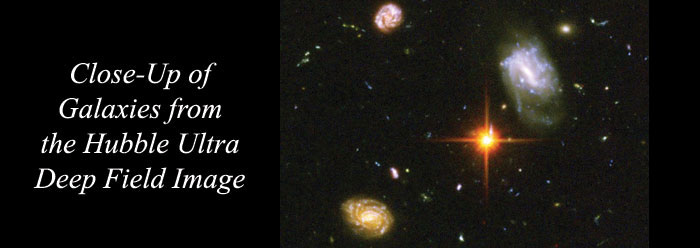It wouldn't make much sense to brag about knowing the diameter of a steering wheel to five decimal places on a car headed the wrong way with an engine about to blow, would it? Neither is it sensible to talk of "precision cosmology" in a day when major upheavals are being seriously considered by astronomers.
Error bars are required markings on scientific graphs. They indicate the range of uncertainty surrounding a measurement. As with the proverbial weakest link, no product of measurements can be more precise than the factor with the biggest error. Astronomers have achieved record levels of precision measuring minute fluctuations in the cosmic background radiation. When combined with other factors whose uncertainties are huge, however, confidence in any conclusion evaporates. Consider some major upsets recently discussed in the literature.
In Science this May, a Korean team said there is growing evidence that the intergalactic space is permeated with magnetic fields in a state of turbulence. These fields could affect ideas about the large-scale structure of the universe, but they began by saying, "The nature and origin of turbulence and magnetic fields in the intergalactic space are important problems that are yet to be understood."1
The Galex satellite recently imaged hydrogen spiral arms beyond the visible arms in galaxy M83. According to the press release, astronomers speculated that stars "could have formed under conditions resembling those of the early Universe, a time when space was not yet enriched with dust and heavier elements."2 The BBC added big error bars: "But this process is not well understood."3 How might this finding throw off estimates of galaxy masses?
In May, Astrophysical Journal Letters reported that astronomers were surprised to find tightly compact galaxies at redshift 2.3, corresponding to one-fifth the assumed age of the universe. They were more compact and dense by a factor of six than normal galaxies, like finding 20-inch-long babies weighing 180 pounds. Early galaxies were once thought to start diffuse and increase in density over time. To account for their formation, the scientists visualized puddles and vortices of dark matter.4
It should be remembered that most leading cosmological models recklessly employ dark matter and dark energy, neither of which have been observed directly, and neither of which is understood at all.5 The use of fudge factors takes all precision out of science.
Recently, inflation theory has come under fire.6 And Space.com dropped a bombshell that the universe is twice as bright as it appears.7 What other sources of error are yet unknown?
Finally, in one of the most astonishing cases of questioning a foundational assumption, an astronomer seriously considered tossing overboard the Copernican principle, the "principle of mediocrity" that has dominated astronomy for over a century. It is a cherished assumption, he said, but "fundamentally untested." Writing for Nature last March, he said the advantage is that it gets rid of the need for dark energy--a conundrum that, for him, is telling us there is "something fundamentally wrong with our assumptions."8
When you hear claims that the Big Bang theory is all figured out except for the final few decimal places, make sure the claimant has not forgotten to draw in these astronomical error bars.
References
- Ryu, D. et al. May 2008. Turbulence and Magnetic Fields in the Large-Scale Structure of the Universe. Science. 320 (5878): 909-912.
- Stellar Birth in the Galactic Wilderness. Galaxy Evolution Explorer press release, April 16, 2008.
- Rincon, P. Stars born in galactic wilderness. BBC News, posted online April 18, 2008.
- Van Dokkum, P. et al. April 2008. Confirmation of the Remarkable Compactness of Massive Quiescent Galaxies at z~2.3: Early-Type Galaxies Did Not Form in a Simple Monolithic Collapse. Astrophysical Journal Letters. 677: L5–L8. See also "Ultra-dense Galaxies Found in Early Universe," posted on Sciencedaily.com April 29, 2008.
- Coppedge, D. 2007. Imponderable Substances. Acts & Facts. 36 (8): 15.
- Deflating inflation? Nature News, posted on Nature.com April 15, 2008.
- Moskowitz, C. New View: Universe Suddenly Twice as Bright. Posted on Space.com May 15, 2008.
- Ellis, G. March 2008. Cosmology: Patchy solutions. Nature. 452: 158-161.
* David Coppedge works in the Cassini Program at the Jet Propulsion Laboratory. The views expressed are his own.
Cite this article: Coppedge, D. 2008. Cosmology's Error Bars. Acts & Facts. 37 (7): 15.














